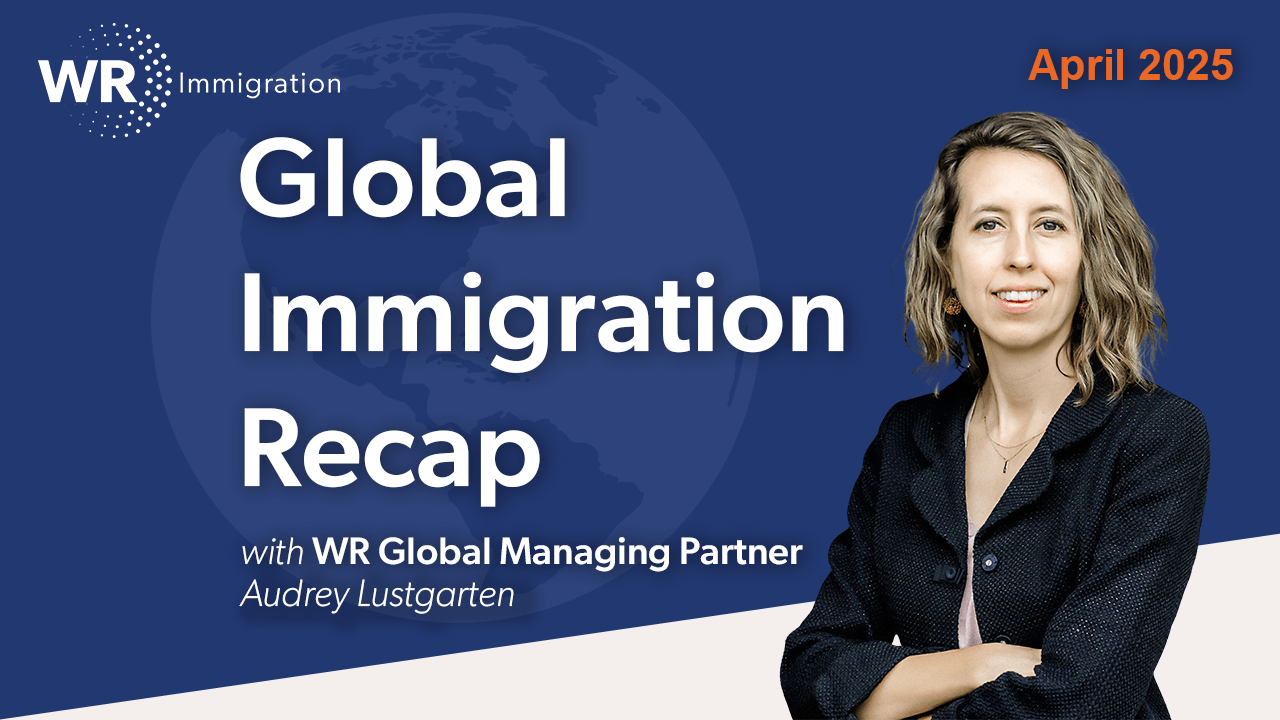WR Immigration’s April global immigration recap includes the latest developments on Brazil’s reinstatement of eVisas for US, Canadian and Australian citizens; Thailand’s new digital arrival card (TDAC) requirement; Australia’s visa processing times and upcoming income threshold changes; and the Philippines’ new digital nomad visa.
Brazil – eVisas Reinstated for Citizens of the US, Canada and Australia
Brazil has reinstated its eVisa requirement for travelers from the United States, Canada and Australia. As of April 10, 2025, citizens of these countries must now obtain an eVisa online prior to traveling to Brazil for business, tourism, or in transit to other destinations. eVisas are typically valid for five or ten years, allowing stays of up to 90 days per visit, with a maximum total stay of 180 days per year. The average processing time to obtain an eVisa is currently five business days, however, we recommend applying well in advance of travel as this is subject to change without notice.
Australia – Income Threshold for Skilled Visas Set to Increase in July 2025; Processing Times Unpredictable
Income Threshold for Skilled Visas to Increase on July 1, 2025
As of July 1, 2025, the income threshold for skilled visas is set to increase by 4.6%. Any nomination applications submitted on or after this date will be subject to the following thresholds:
- Core Skills Income Threshold (CSIT): AUD 76,515. The CSIT will apply to nomination applications for the Core Skills stream of the Skills in Demand visa (subclass 482) and the Employer Nomination Scheme visa (subclass 186).
- Specialist Skills Income Threshold (SSIT): AUD 141,210. The SSIT will apply to nomination applications for the Specialist Skills stream of the SID visa (subclass 482).
- Temporary Skilled Migration Income Threshold (TSMIT): AUD 76,515. The TSMIT will apply to Skilled Employer Sponsored Regional visa (subclass 494) and Regional Sponsored Migration Scheme visa (subclass 187) nomination applications.
Visa Processing Times While official sources initially indicated that skilled visa applications would be processed within one (1) week, we are currently seeing processing times ranging from 13 to 71 calendar days. The most recent government data published in Australia indicates that 50% of applications are processed within three (3) months and 90% within eight (8) months. Employers are advised to plan ahead and account for potential delays.
Thailand – Digital Arrival Card Now Required for All Foreign Travelers
The TM6 immigration form has been replaced by the Thailand Digital Arrival Card (TDAC). As of May 1, 2025, all foreigners traveling to Thailand by air, land or sea must obtain a TDAC within 72 hours before arrival. This digital card can be acquired online by completing a form with personal, travel and health-related information on the TDAC official website. Thai Border Pass holders and transit passengers are exempt from this requirement.
The Philippines – New Digital Nomad Visa Introduced
A new digital nomad visa is being rolled out that will allow eligible foreign workers to live and work remotely from the Philippines for up to one year. Digital nomad visa holders will be able to travel abroad and re-enter the Philippines freely during this period. Details regarding eligibility criteria and protocols for renewing the visa beyond the initial year are still being finalized by immigration authorities.
UAE – Expanded Visa-on-Arrival Program for Indian Nationals
The UAE has expanded its visa-on-arrival program to include Indian nationals who hold a valid residence permit for Australia, Canada, Japan, New Zealand, Singapore or South Korea. This visa-on-arrival is aimed at streamlining business travel for global professionals and allows eligible Indian nationals to visit the UAE for up to 60 days for both business and tourism.


